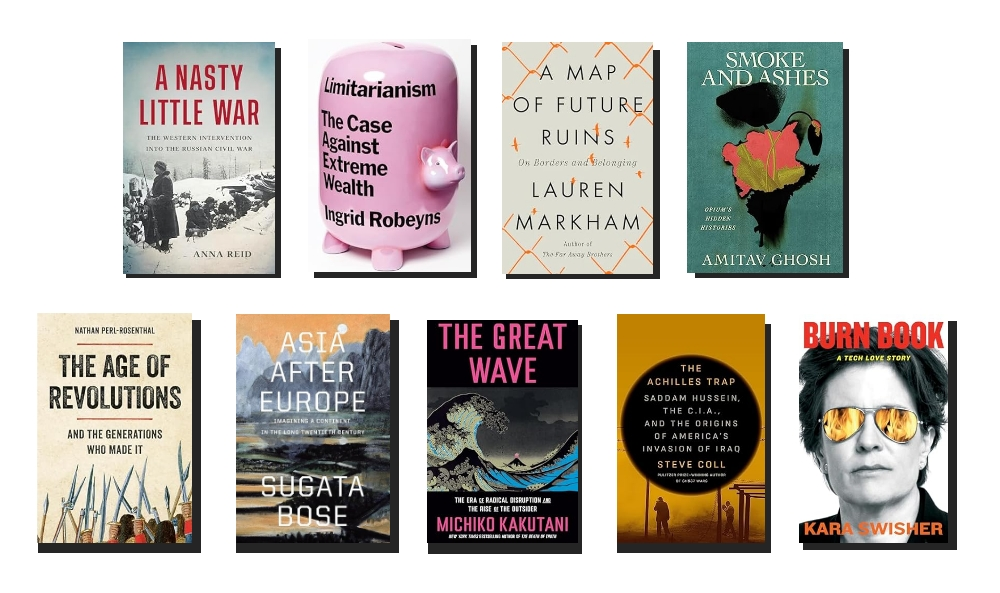In the ever-evolving landscape of academia, 2024 has proven to be a year of profound intellectual contributions. This article delves into some of the most influential academic books released this year, highlighting their significance and impact across various disciplines. These books are not just scholarly works but also pivotal resources that shape contemporary thought and research.
1. “Revolutionizing Climate Science: New Paradigms for Understanding Global Warming” by Dr. Emily Carter
Dr. Emily Carter’s latest publication is a landmark in climate science. “Revolutionizing Climate Science” offers groundbreaking insights into the complex mechanisms driving global warming. With its thorough analysis and innovative approach, this book challenges existing theories and proposes new models for understanding climate dynamics. Researchers, policymakers, and environmentalists alike will find this book an indispensable resource for tackling climate change.
2. “The Evolution of Artificial Intelligence: From Theory to Practice” by Prof. David Huang
Artificial Intelligence (AI) continues to transform industries, and Prof. David Huang’s “The Evolution of Artificial Intelligence” provides a comprehensive exploration of this dynamic field. The book bridges theoretical foundations with practical applications, offering a detailed account of AI’s progression and its implications for the future. It is a crucial read for anyone involved in AI research or application, from computer scientists to industry leaders.
3. “Modern Economic Theories: Unveiling the New Frontiers” by Dr. Laura Patel
In “Modern Economic Theories,” Dr. Laura Patel presents a fresh perspective on contemporary economic models. This book delves into emerging theories that address the complexities of today’s global economy, such as behavioral economics and sustainable finance. With its clear explanations and forward-thinking analysis, it is an essential text for economists, policy makers, and students aiming to grasp the nuances of modern economic thought.
4. “Advances in Neuroscience: Bridging Cognitive and Computational Neuroscience” by Dr. Michael Thompson
Dr. Michael Thompson’s “Advances in Neuroscience” is a seminal work that integrates cognitive and computational neuroscience. This book explores how recent advancements in neuroimaging and computational models are enhancing our understanding of brain functions and mental processes. It is a must-read for neuroscientists and psychologists seeking to explore the intersections of brain science and computational techniques.
5. “Global Health Challenges: Innovations and Solutions” by Dr. Sofia Ramirez
Addressing some of the most pressing issues in global health, Dr. Sofia Ramirez’s “Global Health Challenges” provides a thorough examination of innovative solutions to complex health problems. The book covers a range of topics, from infectious diseases to healthcare delivery systems, and highlights successful case studies from around the world. It serves as a critical resource for health professionals, researchers, and policymakers dedicated to improving global health outcomes.
6. “The Intersection of Technology and Ethics: Navigating the New Frontier” by Dr. James Lee
Dr. James Lee’s “The Intersection of Technology and Ethics” tackles the ethical dilemmas emerging from rapid technological advancements. This book explores topics such as data privacy, AI ethics, and the societal impacts of new technologies. It offers a balanced perspective on how to navigate ethical challenges while embracing technological innovation. Ideal for ethicists, technologists, and policymakers, this book provides crucial insights into responsible tech development.
Conclusion
The academic books of 2024 reflect the diverse and dynamic nature of contemporary scholarship. From climate science to artificial intelligence, these influential works offer invaluable insights and drive forward the boundaries of knowledge in their respective fields. For academics, researchers, and students looking to stay ahead of the curve, these books represent essential reading that will undoubtedly shape future discourse and research.
As we continue to explore and understand the complexities of our world, these texts serve as beacons of knowledge, guiding us through the intellectual challenges and opportunities that lie ahead.
